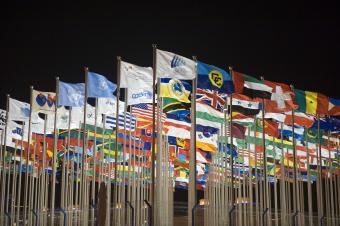International Cooperation
Recent Activity

Held during Migration Week 2022, this webinar features policymakers and practitioners from Africa, Asia, and Europe in a conversation on the progress made in the past three years to better integrate gender into reintegration programs for returned migrants, the ongoing challenges, and how the International Migration Review Forum (IMRF) in May offers a critical moment to promote good practices.

For this episode of Changing Climate, Changing Migration, we speak with Joan Rosenhauer, the executive director of Jesuit Refugee Service/USA, about how natural disasters and other environmental harms affect her organization’s work and its faith-based mission.

With migration a dynamic phenomenon in the Americas, the U.S. government increasingly is realizing that migration management should be viewed in a regional context. This requires a new set of policies and ways of engagement with countries in North and Central America, and beyond, as MPI President Andrew Selee discusses with colleague Andrea Tanco in this episode of our World of Migration podcast.

MPI’s 20th Anniversary Conference featured the Director-General of the International Organization for Migration, António Vitorino, in an armchair conversation with MPI co-founder and President Emeritus Demetrios G. Papademetriou, as well as a panel discussion with UN High Commissioner for Refugees Filippo Grandi and MPI co-founder Kathleen Newland and KIND President Wendy Young.

In this webinar, speakers examine issues of integration and social cohesion in Colombia, and explore how the international community can support Colombia and other countries receiving significant numbers of Venezuelan migrants and refugees. They also discuss Colombian initiatives that seek to improve the situation for migrants as well as the host communities where they reside.
Pages
Recent Activity
Los países de América Latina y el Caribe están siendo transformados por crisis políticas y económicas, nuevos acuerdos de libre circulación y otras tendencias. La cantidad de inmigrantes que viven en la región casi se ha duplicado desde 2010, un cambio increíble en un corto período de tiempo. Este artículo da sentido a una profunda transición en curso en el hemisferio occidental.
En este webinar, expertos del Banco Interamericano (BID) y el Migration Policy Institute (MPI) presentaron las principales conclusiones de su nueva publicación sobre la realidad migratoria de la región y compartieron algunos de los desafíos y oportunidades para la integración de la población migrante y para capitalizar el potencial de sus diásporas como un impulso para el desarrollo.






















